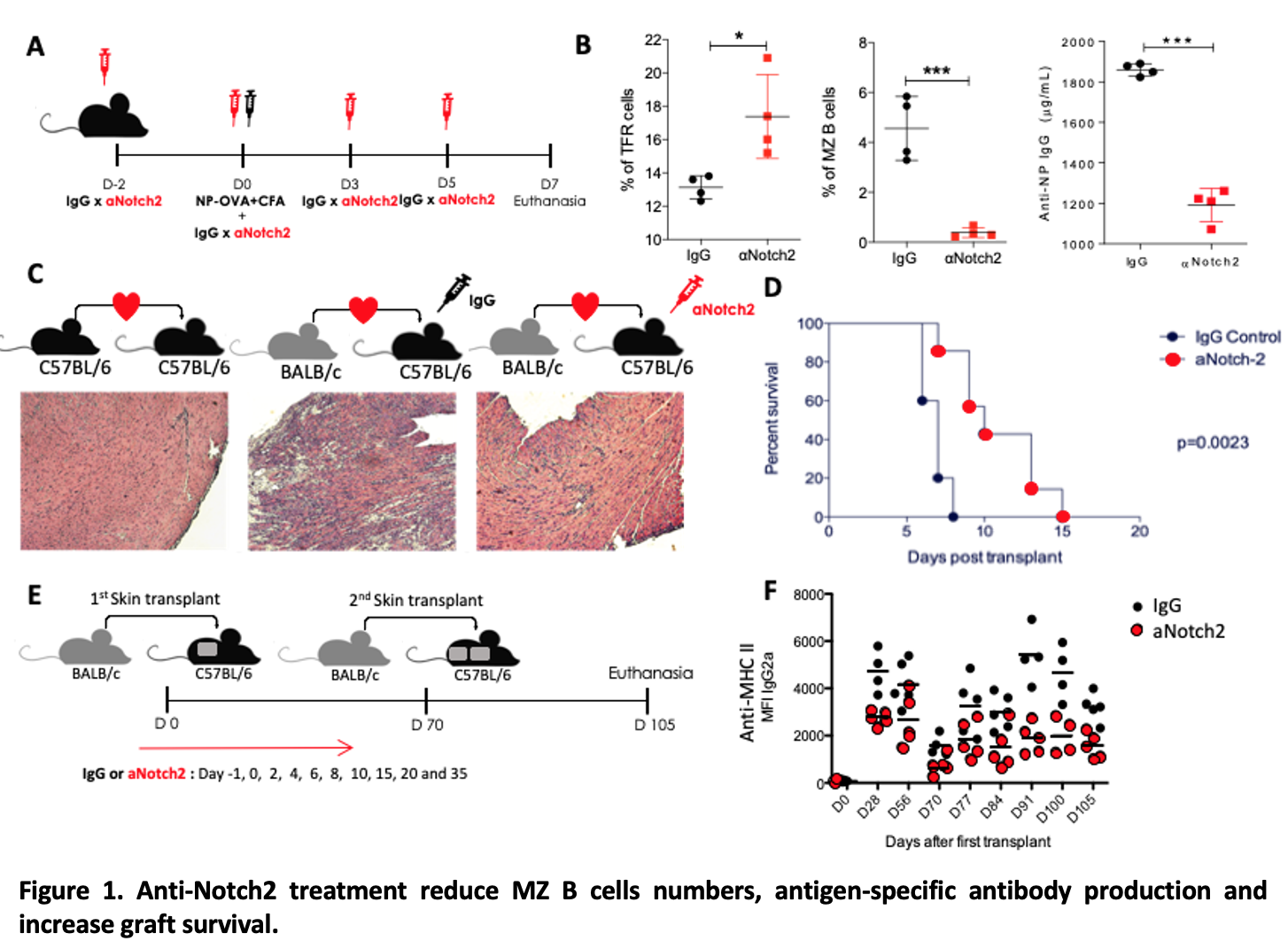The Role of Notch2 in Antibody-mediated Alloimmune Response
1Center of Transplantation Science, Massachusetts General Hospital, Boston, MA, 2Brigham and Women's Hospital, Boston, MA
Meeting: 2021 American Transplant Congress
Abstract number: 209
Keywords: Heart/lung transplantation, Immunoglobulins (Ig), Immunosuppression, Skin transplantation
Session Information
Session Name: B cell/Antibody and Histocompatibility
Session Type: Rapid Fire Oral Abstract
Date: Monday, June 7, 2021
Session Time: 4:30pm-5:30pm
 Presentation Time: 4:30pm-4:35pm
Presentation Time: 4:30pm-4:35pm
Location: Virtual
*Purpose: Antibody mediated rejection is the leading cause of chronic allograft rejection. Developing a novel therapeutic target to inhibit chronic rejection is an urgent need in the transplant field. Marginal zone (MZ) B cells are a B cell subset that play important roles in the immune response by the rapid generation of antibodies against blood borne pathogens but its roles in allograft humoral response is not fully understood. Notch2 is a transmembrane receptor crucial for MZ B cell development. We hypothesized that anti-Notch2 treatment attenuates alloantibody response and increase graft survival through the modulation of MZ B cells and T follicular cells.
*Methods: To investigate this hypothesis, we used a combination of models including: NP-OVA immunization in B6 mice, a BALB/c into B6 mice heart transplant model, and a sensitized skin transplant model. 5mg/kg of anti-Notch2 antibody or control IgG were administered i.p. every 2 days.
*Results: In the NP-OVA immunization model, Notch2 blockade quickly depleted MZ B cells while increasing follicular regulatory T cells (Tfr), leading to a significant reduction in the generation of anti-NP IgG antibodies (Fig. 1 A, B). In a full MHC-mismatched cardiac transplant model, anti-Notch2 treatment was able to mitigate rejection and prolong graft survival (Fig 1. C, D), while decreasing allo-specific antibody production. Lastly, Notch2 blockade successfully impaired the recall of the humoral response after skin transplant in sensitized mice (Fig. 1 E, F).
*Conclusions: Notch2 blockade is a promising approach to reduce alloantibody responses by inhibiting MZ B cells and expanding Tfr cells. Further elucidating the role of the Notch2 blockade in the prevention of antibody-mediated rejection will be a first step in the development of novel therapeutic strategies to more selectively target B cells and inhibit chronic antibody-mediated rejection.
To cite this abstract in AMA style:
Gassen RBenedetti, Murakami N, Borges TJ, Jurdi AAl, Alessandrini A, Riella LV. The Role of Notch2 in Antibody-mediated Alloimmune Response [abstract]. Am J Transplant. 2021; 21 (suppl 3). https://atcmeetingabstracts.com/abstract/the-role-of-notch2-in-antibody-mediated-alloimmune-response/. Accessed February 17, 2026.« Back to 2021 American Transplant Congress

